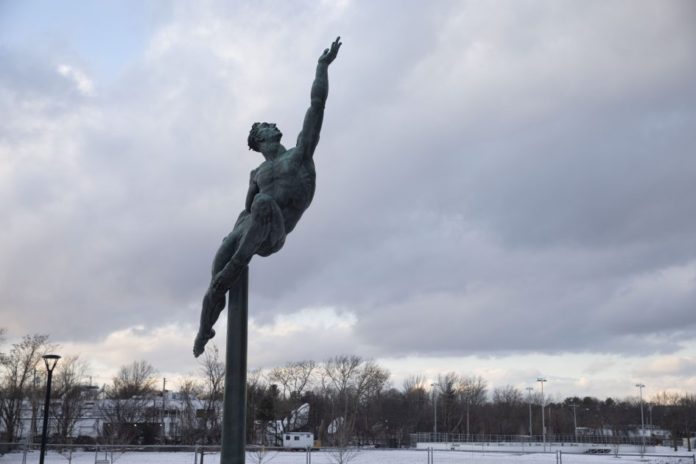
Doyle: We’re at a game changing point in science and technology. We’re poised to enable translation breakthroughs in our applications of that understanding to broadly stated information science, so networking, signal processing, encryption, communications, computing and simulation.
Stubbs: What we’re talking about, looking to the future, exploits the really spooky parts of quantum mechanics, about the relationship of information in spatially separated systems and trying to harness that technologically and bringing it to bear on problems in networking, computing, and sensing systems.
I think we’re learning more about the way the world works every day, and we’re interested here at Harvard in knitting that understanding together across different traditionally separated fields and pulling together an integrated effort that pulls together, computer science, electrical engineering, physics systems engineering, and tries to use these to build new tools to make life better for everybody.
Doyle: Chris, I completely agree, and I would say that one thing, I recognize deeply as the dean on the engineering side is that foundations are critical to achieving success in the domain of innovation or translation, whatever the application space might be. We have to have that core body of knowledge supporting and enabling really a continuum from basic science through applied science, ultimately to engineering. I would also point to the fact that we are modestly scaled compared to some of our peers, which I think empowers us with agility and nimbleness that allows us to quickly assemble the teams that cross the spectrum of these disciplines that we need to harness, and that’s a real strength here at Harvard as well.
Stubbs: I would say we’re making significant institutional investments in this enterprise. We’ve identified a building, working in partnership across the university, that’s going to be put to use for this activity, with new labs, new teaching labs. We will fill that space with colleagues that we intend to bring to campus to strengthen our faculty in this domain. We’re building a strong and vibrant educational program. And I think an important element to include here is that we see this as a way to reach all the way into applications at scale, and we’re building partnerships with industrial partners, ranging from startups-sized companies to major national corporations that are going to have the ability to bring these ideas to bear at scale and impact people’s lives in a positive way.
Doyle: I would say that this opportunity has tremendous potential across a wide array of fields and applications, from more traditional engineering fields like communications, cybersecurity, network science, but across an even broader array of fields including finance (thinking about the new kinds of algorithms that are going to power the future of things like trading and stress testing the market); precision medicine; the quantum principles that we’re going to be able to leverage in devices that will now interrogate at unprecedented scale — spatial and temporal — to bring information back that we can act upon. So it’s virtually a limitless horizon of application opportunities out there.
Stubbs: We’re fortunate in the Boston area to have another university down the road, whose initials are MIT, with which, in particular in this technical domain, we have strong existing partnerships among the faculty. We view this as moving forward arm-in-arm with sister institutions in this region to establish Boston as one of the premier centers in the nation for both innovation, education, and application of this new technology.
Doyle: Our faculties partnering across Harvard and MIT have been doing this for literally decades. So there’s an incredible organic foundation that has been laid in the Greater Cambridge, Greater Boston space that we’re now turning an inflection point to accelerate that activity.
The field of quantum really opens up some exciting partnership opportunities, which we’re exploring with great passion. The notion that the continuum from the university and basic research and applied research, through to getting products in the market, through getting operational networks, operational systems is one that truly is a continuum. So there has to be integrated partnerships, where we invite partners in the private sector in to be embedded on the campus to learn from the researchers in our labs, where we embed our faculty out in the private sector in national labs to learn about the cutting edge applications that need to drive and fuel the research taking place back on the campus. So I really view this as a wonderful new opportunity to rethink the nature of how the private sector and the academy partner to enable the ultimate translation into products, technologies that are going to benefit mankind.
Edited for length.








